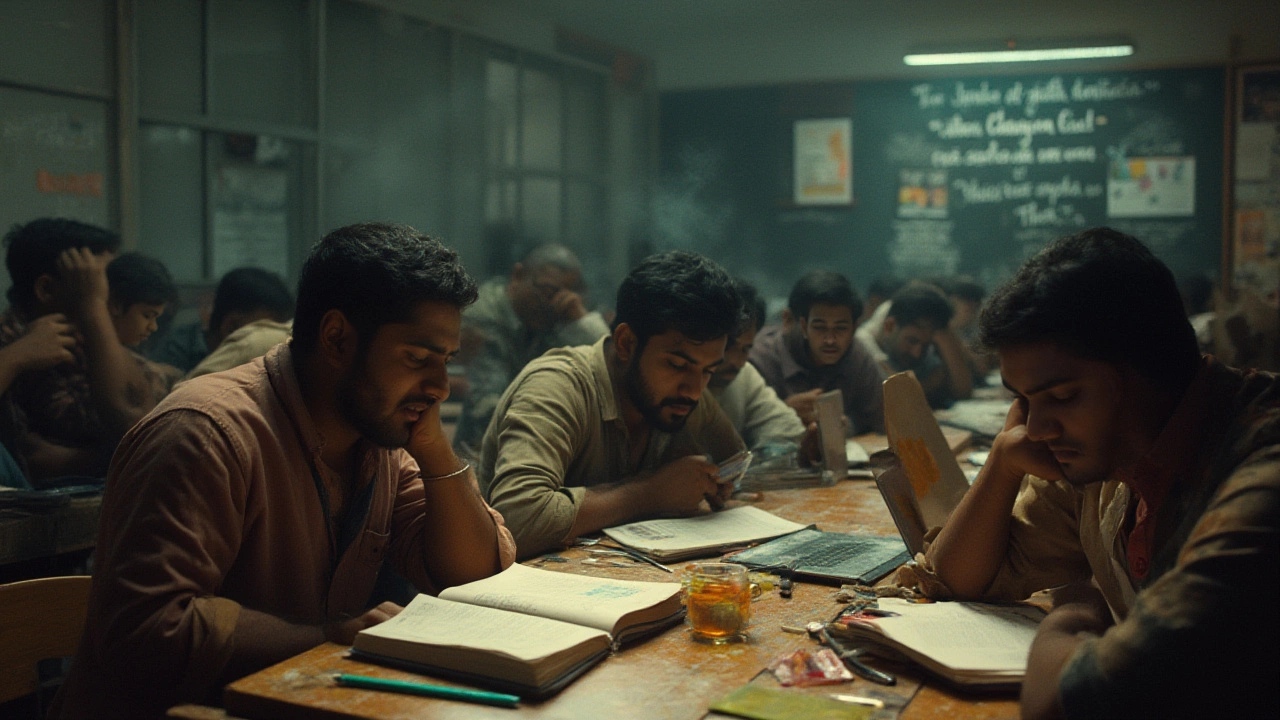Why the Toughest Exams Feel Impossible and How to Beat Them
If you’ve ever stared at a JEE or NEET question paper and felt lost, you’re not alone. These exams are built to separate the best from the rest, and that’s why they feel like a mountain. The good news? Knowing exactly why they’re tough helps you train smarter, not harder.
First, the syllabus is massive. NEET expects you to master every concept in NCERT Biology, Physics and Chemistry, while JEE adds advanced maths and physics problems that go beyond class‑12 textbooks. This breadth means you can’t just skim; you need a solid plan that covers every topic without burning out.
Common Traits That Make an Exam ‘Tough’
1. Time pressure – Both JEE and NEET give you less than two minutes per question. If you haven’t practiced speed, you’ll waste precious minutes on easy items and run out of time on the hard ones.
2. Tricky wording – Questions are phrased to test concepts, not memorization. A small twist in wording can flip the answer, so reading carefully is a must.
3. Negative marking – A wrong answer can dent your score, so blind guessing isn’t an option. You need confidence in every choice you make.
Practical Tips to Tackle the Toughest Exams
Start with NCERT. For NEET, NCERT books are the backbone. Read each chapter, make one‑line notes, then solve every end‑of‑chapter question. For JEE, treat NCERT as the foundation and layer in higher‑level problems from reputable coaching material.
Use past papers. The best way to feel the exam’s rhythm is to solve the last three years of papers under timed conditions. This builds stamina and shows you where the exam’s pattern hides.
Mix short bursts with long sessions. Study in 45‑minute blocks, then take a 10‑minute break. This keeps your brain fresh and improves retention.
Fill the gaps with targeted practice. If you’re weak in organic chemistry, spend an extra hour daily on reaction mechanisms until you can solve them without looking at notes.
Join a study group. Discussing difficult problems with peers uncovers shortcuts you might miss on your own. Just make sure the group stays focused.
Our tag page also lists specific resources that can help you. For example, the post “Is Aakash Material Enough for NEET 2025?” breaks down where popular coaching falls short and shows how to combine NCERT with past year questions for a 650+ score. The “JEE Mains vs JEE Advanced” article explains the key differences in format and difficulty, so you can adjust your prep strategy accordingly.
Remember, the toughest exams aren’t impossible. They just demand a clear plan, disciplined practice, and the right resources. Start small, track your progress, and keep tweaking your approach. Before you know it, the mountain will feel like a hill you’ve already climbed.
Most Competitive Exams: Which Test Is the Toughest in 2025?
Ever wondered which exam truly deserves the 'most competitive' title? Dive deep into the world's toughest tests, surprising stats, real challenges students face, and clever tips to survive and succeed.
read moreWhat is America’s Toughest Exam?
America's toughest exam is often debated, but the United States Medical Licensing Examination (USMLE) stands out as one of the most challenging. It's a three-step examination for aspiring doctors, known for its complexity and high stakes. The exam tests a candidate's ability to apply knowledge, concepts, and principles crucial for patient care. Success requires intense preparation and dedication, attracting top brains willing to take on the challenge.
read moreWorld's Toughest Examinations: A Journey Through the Most Challenging Tests
Delving into the realm of the most challenging examinations globally, this article explores the notorious tests known for their rigorous demands and low success rates. Identifying the most challenging exams involves considering various factors such as difficulty level, pass rate, and global reputation. The article examines exams from diverse fields, offering insights on the preparation strategies and mental fortitude required to tackle these assessments. By understanding these examinations, aspirants can better prepare and strategize their study and preparation plans.
read more

